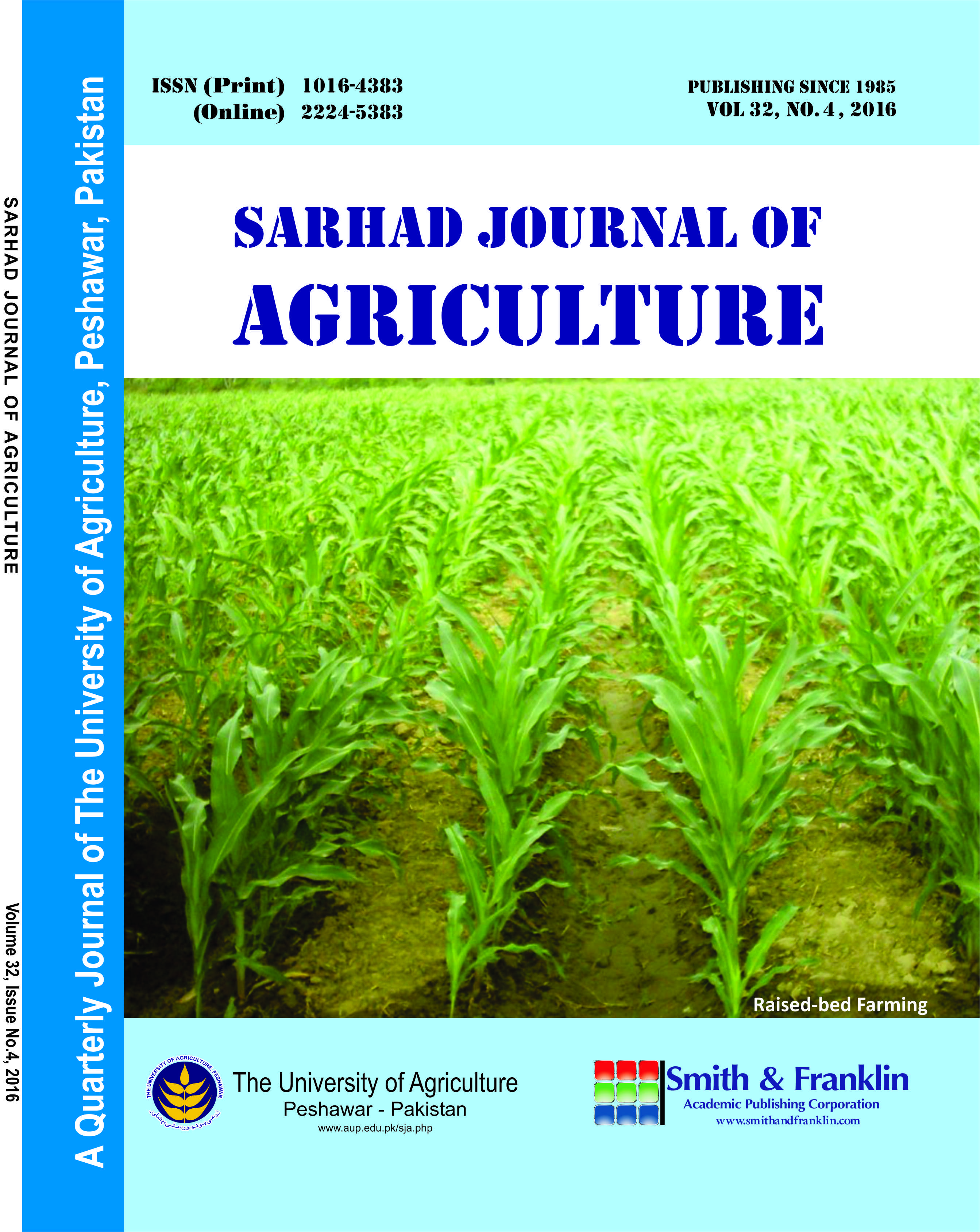The Role of Agriculture in Poverty Alleviation: Empirical Evidence from Pakistan
The Role of Agriculture in Poverty Alleviation: Empirical Evidence from Pakistan
Umar Hayat1*, Shahid Ali1, Abdul Mateen2 and Hazrat Bilal2
ABSTRACT
One of the fundamental postulates of economic development in developing and emerging economies is the alleviation of poverty through agricultural led growth. Pakistan being an agrarian in nature is striving its best to fight against poverty, unemployment and unequal income distribution. Although, Agricultural growth is considered an important instrument for alleviation in poverty, but still its proper measurement is scarce in studies. To examine and analyze the nexus between agricultural growth and poverty in Pakistan, the present study has been organized. Data on key variables including agricultural growth and poverty head count ratio are taken from different authentic sources, such as: Pakistan Economic Survey (PES), International Financial Statistics (IFS) and World Development Indicators (WDI). Ordinary least square (OLS) method is used to estimate the model. Empirical results of the study reveal that agricultural growth and other important variables of the study such as cash crops, livestock, fisheries and forestry are significantly affecting poverty head count rate in Pakistan. Thus, long-run agriculture growth programme in line with overall economic development targets of the country needs to be planned on operational grounds with strict implementation mechanism. It will enhance the tempo of agricultural growth towards poverty alleviation which will ultimately increase the speed of economic development in Pakistan. Furthermore, sub sectors of agriculture may be properly analyzed to find the potential of these sectors for income generation activities which will provide a solution to the key economic issues in the country to meet the sustainable development targets of United Nations
To share on other social networks, click on any share button. What are these?







